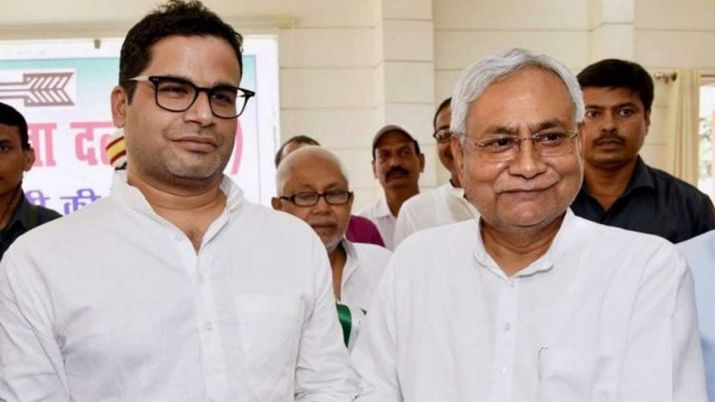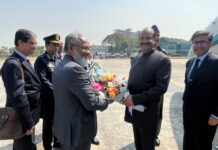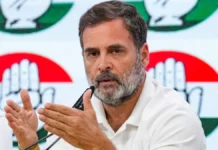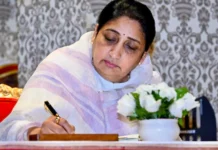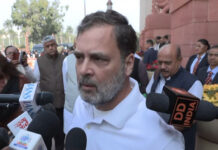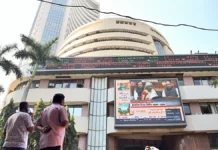PATNA: Janata Dal(United) national vice president Prashant Kishor on Sunday contended that his party, being the senior partner in the NDA in Bihar, should contest more seats than the BJP in the assembly election next year. The two parties had contested equal number of seats in the Lok Sabha elections this year.
“In my view, the Lok Sabha election formula cannot be repeated in the assembly polls,” Kishor told newspersons here. He has in the recent past rankled the BJP with his continuous outbursts against the Citizenship Amendment Act (CAA) and the National Register of Citizens (NRC).
“If we look at the 2010 assembly polls, which the JD(U) and the BJP had last contested together, the ratio was 1:1.4. Even if there is a slight change this time, it cannot be that both parties fight an equal number of seats.
“The JD(U) is a bigger party, has close to 70 MLAs while the BJP has just over 50. Moreover, the assembly elections are to be fought with Nitish Kumar as the NDA face, he said.
The poll strategist-turned-politician, who became a full-time member of the JD(U) just about a year ago, dismissed suggestions that his party chief Nitish Kumar might be expected to cede some ground to the BJP, a favour he had extended in the 2015 assembly polls for Lalu Prasad’s Rashtriya Janata Dal (RJD).
“There can be no comparison between the two scenarios. In 2015, in the outgoing assembly, the JD(U) had about 120 MLAs while the RJD had only 20. But since the alliance was an entirely new experiment, many things were factored in,” Kishor said.
“Moreover, even if the 2015 assembly polls are taken as benchmark this time, it is undeniable that JD(U)’s tally was significantly higher than that of the BJP. So my contention of a 1:1.4 ratio holds ground. I am not talking about the number of seats that each party could contest. I am talking about the proportion,” he added.
He also asserted that the formula of Lok Sabha polls this year wherein JD(U) and BJP had both fought 17 seats each, leaving six for Ram Vilas Paswan’s Lok Janshakti Party (LJP), which joined the National Democratic Alliance (NDA) in 2014, a year after Kumar’s exit, could not serve as the basis for the assembly polls. “The seat-sharing formula in 2019 was decided without taking the 2014 poll results into account. I see no reason why a future election should be decided on the basis of 2019,” he said.
In 2014, the BJP had contested with the LJP and Upendra Kushwaha’s RLSP and the coalition had won 31 out of 40 seats in Bihar with the saffron party alone bagging 22. The JD(U) had fought alone and got only two. The remaining seven were grabbed by the RJD-Congress-NCP combine. RLSP left the NDA last year and is now a part of the five-party Grand Alliance.
To a query as to whether the demand for a greater share of seats was the leverage that Kumar would use for giving up his opposition to NRC, Kishor replied in the negative. He also expressed the opinion that much importance should not be attached to epithets like palturam (weathercock) which has been used for Kumar ever since he dumped the RJD-Congress combine and returned to the NDA in 2017.
“With one or two exceptions, you cannot find a politician who has not changed alliance partners in 15-20 years of political career. So I do not think singling out Nitish Kumar is right,” Kishor, known to have cordial relations with RJD supremo Lalu Prasad who first came up with the colourful epithet, said.
Meanwhile, the BJP which has been clamouring for gaining the upper hand in Bihar and putting a stop to playing second fiddle to Nitish Kumar, reacted with dismay. “The BJP believes in maintaining decorum, discipline and not making any public statement which has only news value. All the decisions in NDA related to 2020 elections are a matter of discussion between our top leadership,” state party spokesman Nikhil Anand said.
Kishor also reiterated his views on the CAA and the NRC and added that National Population Register as a first step to the NRC was unacceptable. PTI

